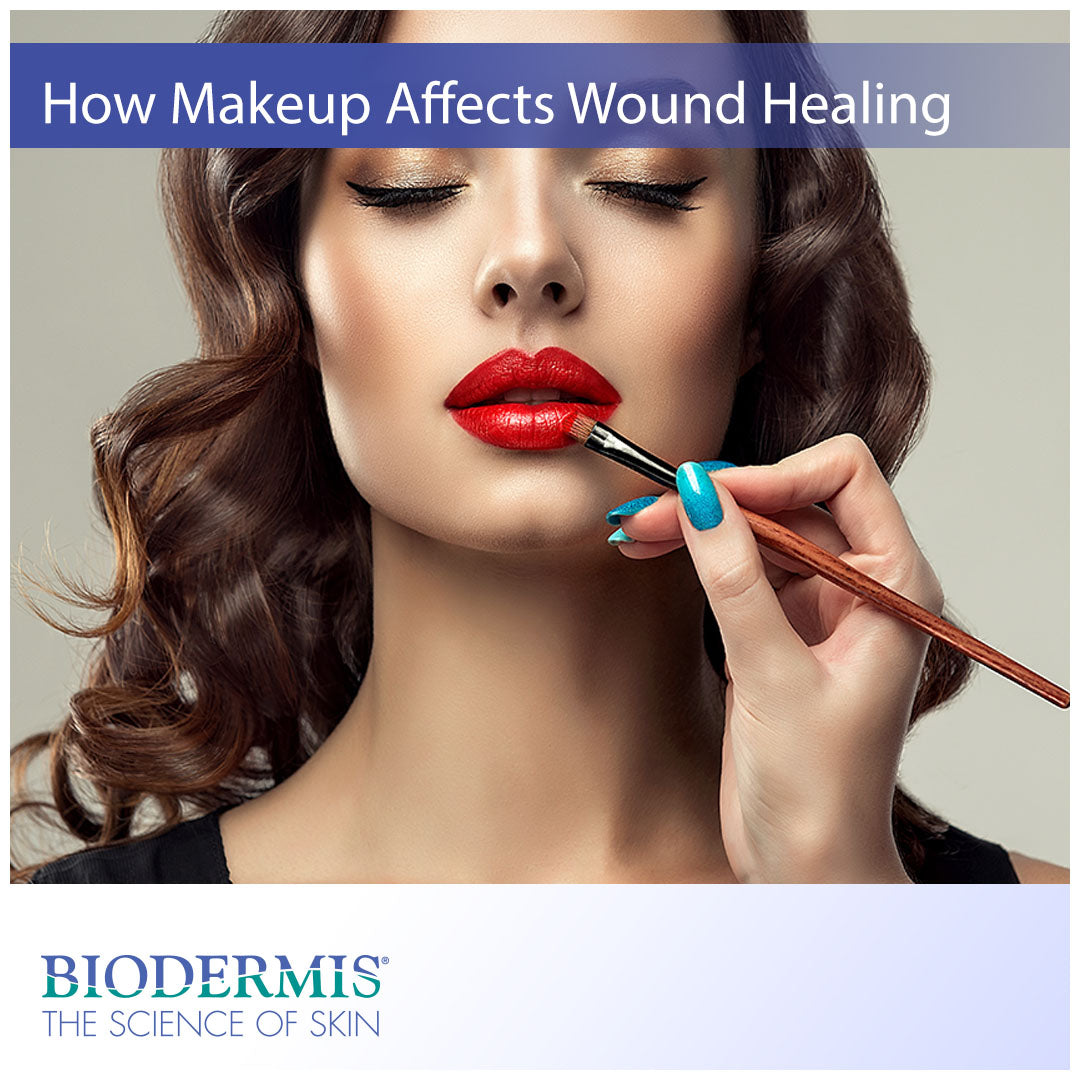Wounds and scars can sometimes be difficult to deal with, especially if they are on a highly visible part of the body, such as the face or hands. It can be tempting to cover your wound with makeup before going out in public. However, there are a number of reasons why you would not want to do this. For a wound to heal optimally, it should not come in contact with external agents that could interfere with the body’s natural healing abilities. Instead, wounds should be kept clean and covered with a bandage or gauze. Once the wound has fully healed and you are a left with a scar, there are several options to reduce its visibility.
Open wounds that are still in the healing process are vulnerable to infection. An infected wound can take much longer to heal and lead to greater scarring down the road. Makeup tubes or containers are often carried in a purse or pocket and are used continuously without proper cleaning or storage. Such a scenario is a breeding ground for bacteria and can cause infections when applied to an open wound. Furthermore, if your wound has not been recently cleaned and you apply makeup over it, bacteria can get trapped inside and cause infection. You can tell if you wound is infected if it is painful, red, or swollen.
Makeup dries out the skin
Certain makeup products have the tendency to dry out the skin. This can be especially harmful to wounds because wounds need a moisture-rich environment to heal. This is why it is generally a good idea to cover your wound with a bandage to protect it from becoming dry in the open air. When a wound does not get proper moisture, surface cells on the skin can dry out and subsequently increase pain or slow down the healing process.
Makeup clogs pores
Makeup can clog the pores on your face, causing your skin to become oily and create acne breakouts. Oily skin is gives surface bacteria an environment that they can flourish in and can increase the likelihood of wound infection. If you must use makeup, use one that is noncomedogenic, meaning that it will not block pores.
To help your scars fade using only clinically-proven methods, it is best to use silicone scar gel. Medical silicone gel as a topical scar therapy has been the gold standard in professional scar treatment for over 30 years. Topical silicone gel will reduce the height and discoloration of your scar, helping it blend in with the surrounding skin tissue.
Reasons not to use makeup to cover a wound
Wound infectionOpen wounds that are still in the healing process are vulnerable to infection. An infected wound can take much longer to heal and lead to greater scarring down the road. Makeup tubes or containers are often carried in a purse or pocket and are used continuously without proper cleaning or storage. Such a scenario is a breeding ground for bacteria and can cause infections when applied to an open wound. Furthermore, if your wound has not been recently cleaned and you apply makeup over it, bacteria can get trapped inside and cause infection. You can tell if you wound is infected if it is painful, red, or swollen.
Makeup dries out the skin
Certain makeup products have the tendency to dry out the skin. This can be especially harmful to wounds because wounds need a moisture-rich environment to heal. This is why it is generally a good idea to cover your wound with a bandage to protect it from becoming dry in the open air. When a wound does not get proper moisture, surface cells on the skin can dry out and subsequently increase pain or slow down the healing process.
Makeup clogs pores
Makeup can clog the pores on your face, causing your skin to become oily and create acne breakouts. Oily skin is gives surface bacteria an environment that they can flourish in and can increase the likelihood of wound infection. If you must use makeup, use one that is noncomedogenic, meaning that it will not block pores.
Concealing scars
Once your wound has fully healed and has reached the scarring phase, you may use makeup to cover it. In fact, some makeups, such as those that contain SPF, may be beneficial for your scars over time. UV rays from the sun can cause hyperpigmentation and darkening of scar tissue, making it more visible. Makeup can be a useful way to protect your scar against the harmful effects of sunlight. It is best not to use makeup products that contain skin lightening agents such as bleach or hydroquinone, since these can do more harm than good to your scar over time.To help your scars fade using only clinically-proven methods, it is best to use silicone scar gel. Medical silicone gel as a topical scar therapy has been the gold standard in professional scar treatment for over 30 years. Topical silicone gel will reduce the height and discoloration of your scar, helping it blend in with the surrounding skin tissue.
Biodermis is an innovative market leader with 30 years of expertise in the medical silicone industry. Visit Biodermis.com today to explore a complete range of scar management and post-operative care solutions.
PHYSICIANS AND MEDICAL PROFESSIONALS: REFER OR RESELL?
Biodermis offers custom tailored referral programs designed to simplify and reduce the cost of your patients' post-op care. Additionally, we offer professional pricing if you opt to retail our products. Give us a call at 800.322.3729, and we will be happy to provide additional details on these programs.





